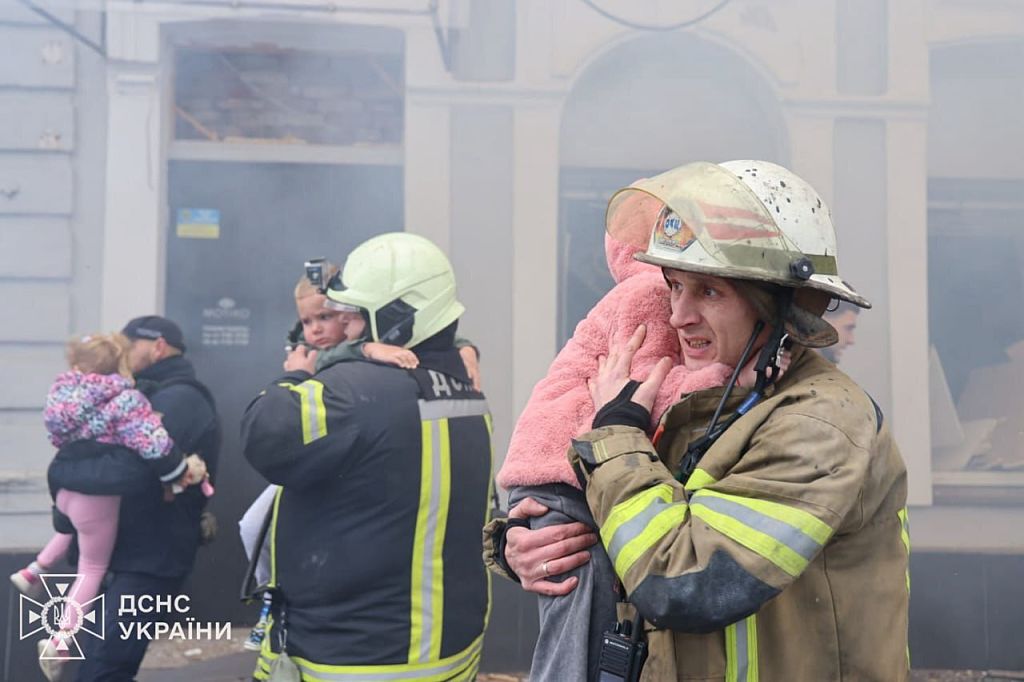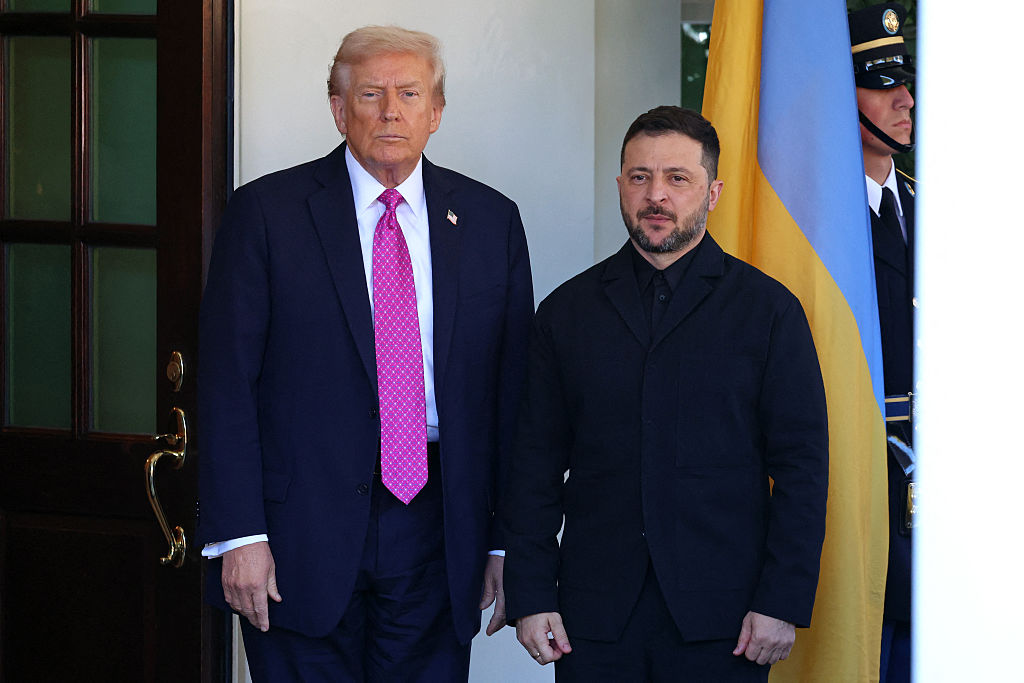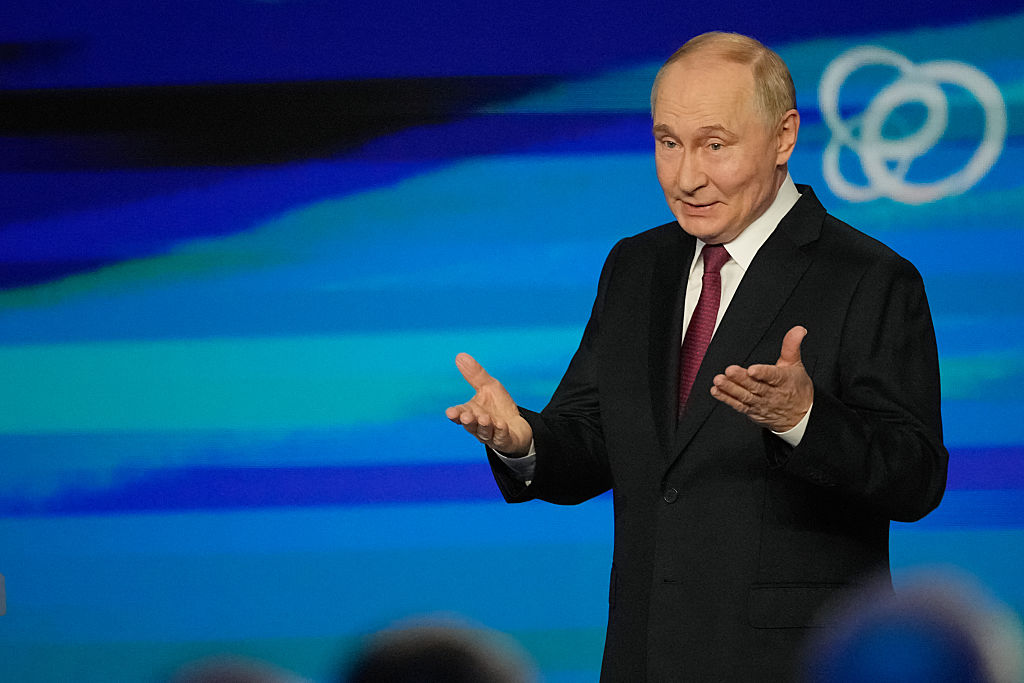In my village in Ukraine, there aren’t many families left intact. The funerals of those who have been killed in the war have been taking place with crushing regularity. It feels like everyone’s loss. Today, in house after house, you can find parents whose children have either died or are still fighting with no indication of when they may return. It’s almost impossible for couples to start families — men are deployed to the front line with little hope of any leave. If they return alive, most are maimed in some way.
There is, though, a spark of hope for these young Ukrainians. Ukraine has quite an advanced network of fertility clinics, which are often used in more peaceful times by foreigners taking advantage of liberal surrogacy laws. Soldiers heading to the front have begun to visit these clinics, to freeze their sperm and make a “biological will,” naming the woman who would have the right to use it for IVF during their deployment or even in a posthumous conception. There are a few female soldiers, too, who have done the same with their eggs.
For Ukrainians, the falling birth rate is not a side issue but is fundamental to the battle now being fought
A few months ago, rules were about to be changed to order the destruction of soldiers’ sperm in the event of their death. But following a backlash from soldiers’ partners as well as medical professionals, a new law was passed, which says that any soldier wishing to have their gametes frozen will have storage costs paid for by the state as of next year, and for three years after their death.
Successful IVF treatment has existed since 1977, when Louise Brown was conceived in the UK, but posthumous IVF has triggered ethical debates for a long time. It is obviously ethically complicated to create a child who will not have a father: critics in Israel refer to it as “planned orphanhood,” and it is illegal in Italy, Germany and Sweden. That bereavement should be closely followed by pregnancy and single parenthood inevitably piles on emotional and financial pressures for the mother. For this reason, the US makes widows wait a year before going ahead with the creation of an embryo.
In Ukraine, the number of births — just 187,000 last year — is a third less than it was before the full-scale invasion, while there were half as many IVF births last year — 6,000 — as previously. The crisis has swept aside any misgivings. It’s up to would-be parents to decide whether they want to take this step.
War takes life in many ways. At least 31,000 have fallen in battle, and 10,000 civilians have been killed by Russian attacks, with 20,000 children kidnapped and deported to Russia. Six million now live abroad, of whom more than a million are children. Ukraine is left with the lowest birth rate in the world, lower than was recorded by any nation during either world war.
For Ukrainians, the falling birth rate is not a side issue but is fundamental to the battle now being fought — for the survival of the nation. This is why many private fertility clinics started to offer free sperm freezing and storage, and even IVF, to soldiers and their partners as soon as the full-scale war began — before the government decided to pay for this service. Oleksandr Yusko, chief of the Ukrainian Association of Reproductive Medicine, tells me: “Some Ukrainians are raising money for drones, some are buying cars for brigades. We are preserving the gene pool of the nation.”
By August last year, some 3,500 sperm and egg samples had been frozen and 300 IVF procedures conducted, at no expense to the soldiers. Demand has surged. Screening and freezing sperm usually costs about $200; egg extraction and freezing is $1,250, while IVF starts at $2,500. The actual storage cost, which is now to be met by the government, is the cheapest part. This, Dr. Yusko says, is a problem. “No one reimburses these [screening and IVF] costs for our clinics. There is no support from the state — money tends to run out, even from private donors,” he says. Ukraine’s funds are so short that the subsidy scheme can’t start immediately.
Dr. Stefan Khmil’s clinics in Ternopil and Lviv were the first to offer free cryoconservation and IVF for the military. They now have 550 sperm samples and have completed 275 IVFs, some with the help of an American patron. They have reserve generators to ensure power supply in case Russian missiles take out the grid.
Dr. Khmil believes that cryoconservation should not be voluntary but obligatory, with every enlisted soldier freezing their gametes before going to war. He says this will help preserve the bloodlines that are threatened by war. Wounds which can render a soldier infertile make up to 10 percent of all injuries on the front line.
Stress and hypothermia also take a toll. Recently an officer and his wife came to see Dr. Khmil; the soldier has fertility issues. “It is no surprise why. Just imagine — it is a cold night with pouring rain, Russians are shooting, and he is lying on the ground in a puddle, because it is impossible to even raise his head. Of course he got severe hypothermia.”
When Russia invaded, Khmil’s colleagues saw a sharp increase in miscarriages, especially early-stage. Women are increasingly likely to suffer pregnancy-induced diabetes and other complications. “There are air-raid sirens, bombing, mothers are rushed from the perinatal center to the basement with their children,” says Yusko. “How can a pregnant woman survive it?”
War is not the only reason Ukrainians aren’t having kids. Many can’t afford to. Mothers are paid $900 for every birth (more than twice the average monthly salary), but this figure has been the same for ten years, so inflation has cut its value by two-thirds. There is some talk of raising it. “Women who want to have children despite the war are heroes,” Yusko says. “They deserve nothing but praise and full support.”
As Ukraine’s budget deficit is expected to reach $43 billion by the end of the year, the obvious step is to try to find sponsors to fund the gamete-freezing program, to see if this is a cause that might attract international support — and if there are people out there willing to help Ukrainians who are not just willing to fight and die for their country, but also to provide new life.
This article was originally published in The Spectator’s UK magazines. Subscribe to the World edition here.


























Leave a Reply